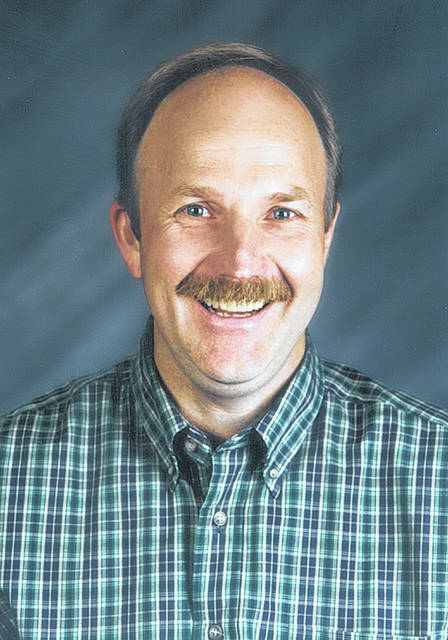
Paul LaRue, retired Washington Court House City Schools social studies teacher and local historian, recently reflected on his participation in the Library of Congress Veterans History Project.
“My students and I began participating in Veterans History Project (VHP) in 2003,” LaRue wrote in an article on www.blogs.loc.gov. “My school district is rich in community support but not in financial wealth. The VHP appealed to me because I felt strongly about its mission to preserve veterans’ stories of service and sacrifice and, frankly, it did not require money to participate.”
LaRue explained that the first interview they conducted was with an African American World War II veteran who was the Commander of a local American Legion Post.
“We invited the veteran to the classroom, and the students conducted the interview from a script of questions they had developed,” LaRue wrote. “We soon learned that word of mouth was extremely important to connect with veterans. Another student and his grandfather, a Korean War veteran, would have lunch at the American Legion Post and talk up our project. My students and I became regulars at both American Legion Posts in our community, and our classroom became a place where veterans felt safe to come and share their stories of service and sacrifice.”
In many cases, the veteran would tell the students and LaRue that they had never spoken about their service before. Many were very modest about their service, usually saying something like, “My service was not that interesting, but you should talk to…”
A group of African American veterans from the nearby community of Yellow Springs contacted the class and asked if the students could travel to their community to record their veterans. One veteran told them, “No one was preserving our stories.”
“Between 2003 and 2010, we interviewed 68 Veterans for the VHP,” LaRue wrote. “Most had served in World War II, but we also interviewed several veterans who had served in Korea and Vietnam. Approximately half the World War II veterans we interviewed were African American. We interviewed several women who had served. Every veteran who shared his or her story helped my students and I better understand the sacrifices their service involved.”
LaRue said that the project was successful because of strong community support. The single most powerful lesson for him was how the veterans viewed the project and the powerful connections formed through it.
“I have been honored to give three eulogies and serve as a pallbearer for veterans we interviewed,” LaRue wrote. “Last summer, mid-pandemic, I was honored to make graveside remarks for the last African American World War II veteran from our county.”
Several of the interviews the students conducted included: Fred DiDomenico, World War II, Sgt., Marine Corps, first wave Bougainville and Guam, Silver Star recipient. Buddie Branch, World War II, Corp., 761 Tank Battalion, Bronze Star recipient. George Walker, World War II, 1st Lt., Counter Intelligence Corps, discovered Nazi death factory, also interviewed by the Shoah Foundation. Howard Gray, World War II, Sgt., 3414 Quartermaster Truck Company, “Red Ball Express.” Norman Armbrust, World War II, Army Air Corps, Flight Officer, 423rd Bomb Squadron, Prisoner of War, Stalag Luft III and Stalag VII. Mildred Thoroman, World War II, 1st Lt., Army Nurse Corps, served in Australia and New Guinea. Bill Anderson, World War II, Pvt., Army, combat at the Battle of Attu, Purple Heart recipient.
“The impact of the veterans’ stories has wide ranging benefits,” LaRue said. “Holocaust education has been enriched by first person accounts of liberators. African American veterans’ stories of service contain both pride in serving their country, coupled with painful stories of racism they faced while serving. These accounts make a useful starting point for discussions of social justice issues faced by our country, past and present. What stories are waiting for you and your students to discover and preserve using the Veterans History Project?”
The information in this article was provided by blogs.loc.gov/teachers/2021/05/a-teachers-reflections-on-participating-in-the-library-of-congress-veterans-history-project/.


